|
12/19/2016 Four Poems by Mark Younggeographies: Cincinnati Seurat's use of long- term storage for his broken lines of color was a formal endeavor to ensure that a wet weather box always remained in the top right hand corner of his website even if paddle boats didn't make a comeback or hypothesis testing was temporarily unavailable. The gray world of the civil servant Made up pass- words. Mistaken assumptions. Out on the street & it not yet 3 p.m. On the wall above is a shelf with an icon on it, all dirt, some darkness. A man comes running. He is followed by a taxi. This / side of / the Okefenokee Swamp A nucleic acid strand which terminates when the snow does not slope upward, or an additional query that grabs X number of loops on the page-- either means that the Amsterdam proletariat need to display their English proficiency continually, not just in the pilot episode. Three hay(na)ku for Jorge Luis Borges O to have the time to write a history of the tango. nemesis Stomped on from a great height. Known as a pas de Dieu. Channeling Conrad I can articulate darkness, but the pronunciation of enlightenment always eludes me. 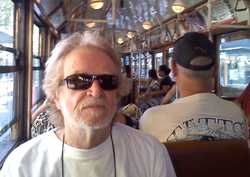 Bio: Mark Young lives in a small town in North Queensland, & has been publishing poetry for almost sixty years. He is the author of over thirty-five books, primarily text poetry but also including speculative fiction, vispo, & art history. His work has been widely anthologized, & his essays & poetry translated into a number of languages. His most recent books are Mineral Terpsichore & Ley Lines, from gradient books of Finland, & The Chorus of the Sphinxes, from Moria Books in Chicago. An e-book, The Holy Sonnets unDonne, came out earlier this year from Red Ceilings Press; another, For the Witches of Romania, was recently published by Beard of Bees; & another, a few geographies, will be out later this year from One Sentence Poems. 12/18/2016 20 Exercises in Elitism by Tim Staley20 Exercises in Elitism Imagine a helicopter meets wind power Imagine the Allegory of the Cave meets The Big Bang Theory (2007-present) Imagine a man at the top of a mountain meets irrepressible loneliness Imagine dual citizenship meets ROBOCOP (2014) Imagine a big sorrel vibrating beneath you, snorting with impatience, one hand in his mane, one on the reins meets a steel mill all boarded up Imagine Socrates’ cup of hemlock meets Miss Teen USA Imagine drawing a Card Against Humanity meets European war dogs ripping your body apart Imagine a John Lennon half Mexican, half Afghani on American Idol meets the Mariana Trench Imagine Melania meets the man of her dreams Imagine a policeman and another policeman and another policeman and a Secret Service man meets a series of black vans arriving to your house, your address, your fair hair Imagine Rosa Parks meets the electric chair Imagine a hairdryer meets a strand of hair at the bottom of the ocean Imagine the rise and fall of the Irish elk meets the Grand Old Opry, the Grand Old Party Imagine a Luger in the top of Scott’s closet meets an AR-15 Imagine quixotic optimism meets Mark David Chapman about a quarter mile from the scarlet fields meets the front door of The Dakota Imagine fleeing to Canada meets not making it in time Imagine an application for your smart phone that tells you how to dress, how to hold your hips meets the House UnAmerican Activities Committee Imagine Barney Fife’s bullet meets the NRA seizing their moment to play offence Imagine being the one talking meets the end of the world Imagine the scarlet poppies over an old battlefield making us all narcoleptic and livid, narcoleptic and livid, meets zero humidity ~ Note: This form is stolen from Anthony Discenza's audio installation: A RISING TIDE LIFTS ALL BOATS 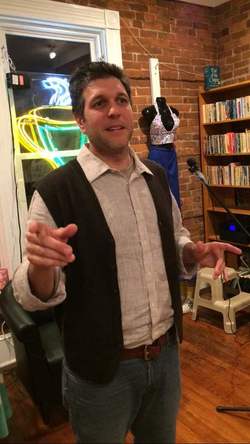 Tim Staley was born in Montgomery, Alabama, in 1975. He serves as publisher of Grandma Moses Press. His debut collection, Lost On My Own Street, was released by Pski's Porch Publishing in 2016. His newest chapbook, The Most Honest Syllable is Shhh, is forthcoming from Night Ballet Press. He lives in the highlands of the Chihuahuan Desert. Visit him online at poetstaley.com/. 12/17/2016 Two Poems by Scott Thomas OutlarEven When Broken When suffering arises in life, whether it be physical, emotional, spiritual, or psychological, the single most important decision that can be made is to keep … moving … forward. Sometimes each step will feel like trudging through sludge, and sometimes there will come quantum leaps. This advice is, of course, beyond the pale when it comes to expressing platitudes, but I swear to God it remains ever a fundamental truth. A Fate Worse Than Death There are events in life worse than death. Pile them upon my shoulders to weigh me down. Even if I cannot walk, I swear to God I’ll continue to crawl. Eventually, I will grow stronger. 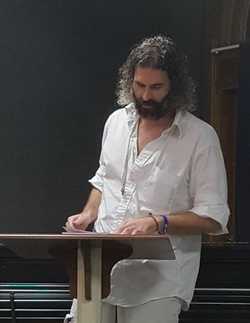 Bio: Scott Thomas Outlar hosts the site 17Numa.wordpress.com where links to his published poetry, fiction, essays, and interviews can be found. His most recent books include: Songs of a Dissident (Transcendent Zero Press, 2015), Happy Hour Hallelujah (CTU Publishing, 2016), and Chaos Songs (Weasel Press, 2016). 12/16/2016 Interview with Singer-Songwriter Chloe Kat
photography by Logan Zane Hunt
Chloe Kat, a singer-songwriter and citizen of the world, whose ethos is the fluxing state of travel and wandering in that deep spiritual sense of seeking out the unknown/unfound, always three-steps-ahead-of-us mysteries of life. The music is poetic and true, whatever truth is, it's mostly something that's felt, and this is a music that makes you feel. Here Chloe talks inspirations, poetry and guidance, giving a glimpse into her creative world and the ever evolving journey that is a life in motion. AHC: What has this journey, this life in music been like for you, the highs and the lows, and what life lessons do you feel you've picked up along the way? Chloe: This musical journey has been one of self-exploration and spiritual discovery. My passion for writing began in me as a child when my grandfather passed away and I realized a life's impermanence. My mother and I placed golden roses on his casket and I remember crying silently as the verses flew from spirit to mind, pen to paper. The poem was entitled Golden Rose. Weeks later my mother and I stumbled across a single golden rose growing from our barren yard of wood chips and cacti. For me, it has been a synchronistic symbol of divine connection ever since. As I grew older, I kept writing poetry to resolve emotions. I was highly sensitive and an open-channel for empathy so I felt everyone's pain as if it were my own. Writing poetry and music was like converting people's pain into something free-flowing and beautiful. I wrote to heal. At 15 I was urged to pick up a guitar and started singing poems I had written over open chord progressions. The healing messages could now hold vibrations and that's when I began to realize- the gift I had used to heal myself was affecting the mental health, compassion, and morality of those around me. I discovered that the songs were helping to heal humanity's wounded heart. As my consciousness grew, my fascination with jazz, blues, folk, and rock n' roll history led me through all kinds of inspiration. I began to recognize the synchronicity more which showed me the cosmic inter-connectedness of all things. I have felt guided and protected through the ups and downs of my musical career thus far. It has become a play of forces between light and darkness, feminine and masculine, sun and moon. In all of creation, one cannot exist without the other. One discovers itself by understanding the mystery of the other. My greatest teachers have been fellow artists who follow their own creative paths and also feel as though some unifying force is guiding them to new places and revelations. My other greatest teachers along my musical journey have come in the form of words that carry meaning such as Forgiveness, Humility, Compassion, and Gratitude. AHC: What first drew you to music and what was your early musical environment like growing up? Were there pivotal songs for you then that just floored you the moment you heard them? Chloe: I believe that the first songs to really floor me were Mr. Tambourine Man by Bob Dylan and Let it Be by The Beatles. I vividly remember my experiences hearing both of those songs for the first time. They have stuck with me. I also couldn't fall asleep unless I listened to soft emotional piano pieces such as Beethoven's Moonlight Sonata. When I got older and joined my schools jazz band, I was absolutely blown away by the Delta Blues guitar players and big Jazz bands led by Duke Ellington and Cab Calloway. I wanted to learn from these singing, dancing, joyful leaders. What became even more inspiring was understanding all the oppression and heaviness these artists dealt with and then somehow turned all of it on its head to find release and manic happiness. Their music and motions spread joy, they made people move and flow and gave people access to their personal freedom. I also found home in Fleetwood Mac, Pink Floyd, and Funkadelic in my adolescent years. AHC: Do you remember the first song that you ever wrote? Chloe: The first song I ever wrote was called Hate. If I remember correctly, I was frustrated by the young boys around me who always tried to break eachother down with words and dominant violence. My pride wanted me to hate them, but my nature made me want to love them, and so I did, deeply. AHC: Who are some of your musical inspirations? Are there certain albums or songs you couldn't live without? Chloe: I kind of answered this in question 2, but the biggest inspirations on my own musical style have been poetic songwriters such as Bob Dylan, David Bowie, Leonard Cohen, Stevie Nicks and The Tallest Man on Earth. I also love the poetry of Maya Angelou and Mary Oliver. I am most inspired by my close friends in the music scene of Nashville, Tennessee. Honestly, I have seen so much live music here that has healed me and given me light of hope for the dreamers. AHC: What do you think makes for a good song, as you're writing and composing, is there a sudden moment when you know you've found the right mix, that perfect angle of light, so to speak? Chloe: A good song, to me, carries a message and emotion that reaches for the truth. I do not have the answers- but I believe a good song should make you feel and/ or think really hard about existence. AHC: Do you consider music to be a type of healing art, the perfect vehicle through which to translate a feeling, a state of rupture, hope lost and regained? As a listener of music I have this impression, I wonder, as the artist, the creator, do you have this feeling about the transformative power of song? Does the writing and creating of the song save you in the kinds of ways that it saves us, the listener? Chloe: Yes, I touched upon this earlier as well. I certainly consider poetry and music to be a healing art. It has saved the sacred creative self and I've received countless confirmation that it does the same for others. It liberates our souls, our bodies, and our minds. The human condition connects us through common emotions that urge us to find freedom and real love. AHC: When you set out to write an album of songs, how much does 'where the world is' in its current moment, culturally, politically, otherwise, influence the kinds of stories you set out to tell? Chloe: I recently watched an interview with Nina Simone in which she spoke of the artist's duty as a responsibility to "reflect the times and situations in which you find yourself" I agree with her on this responsibility as a creator who seeks evolutionary progress. In order to channel the emotional energy and dig for words from the inner-self, I must educate myself, travel often, and be aware of the current state of the world around me, so I can feel it all and hurt from it. Without this hurt, there comes no yearning for change and no creative action towards the healing light. Everything in this life must be a lesson that leads to a blessing. AHC: What are your favorite on-tour, on-the-road memories? Chloe: Ooh I've been playing these Lantern Festivals allover the country this year. It's usually just me and my guitar, Koko, flying out for the weekend to play for 3-6k people in giant race car tracks or open fields with fire pits and tiki torches. The sight of the fire laterns launching to the skies in unison carrying written prayers, messages to loved ones, dreams, and gratitude of the people always recharges my spiritual batteries. My favorite memory from those journeys was when I got to play an original song called "Now I See The Light" while everyone launched their lanterns. This experience allowed me to open and guide the spiritual energy up as a unified offering. I remember feeling surrounded by white and blue light and to be honest, in those moments I lost my self identity and had become One with the All. My favorite tour memory with my band, Kat Milk Blu, was our road-trip to Maryland and through Washington, DC. We played at a kaleidoscope exhibit at The Strathmore Mansion and got to visit the Lincoln and Martin Luther King Jr. Memorials. We have become a musical family inspired by the idea of unity and blending within cultures and genres. We play blues, jazz, soul, funk, folk, rock n' roll. AHC: Do you have any words of advice or encouragement for other musicians and singer-songwriters out there who are trying to find their voice and their way in this world? Chloe: My words of encouragement to other musicians and writers out there would be to search for the balance between all forces. In the middle, there is peace and clarity. Also I would say that a lot of life is letting go of incredible, wondrous, beautiful things if you are lucky enough to find them in the first place. Every moment is a new beginning and the only constant is change itself. Be aware and open to following the signs and synchronicity. Trust the wind's guidance. AHC: Do you have any new projects in motion you'd like to tell people about? Chloe: New projects, yes! I've been singing in this Funkadelic cover band called The Free Mind Church of Funkadelia with some insanely well-seasoned players.Some real heavy hitters. Its such a learning privilege and honor to rehearse and perform with these musicians. I love it. Also, my manager and I have patented a publishing company/art collective called 27 Apples Entertainment. Some dear friends of mine came together within this collective to run a DIY underground music venue/art space called Meal Ticket for the past year. We were recently shut down, along with a string of local DIY venues, by the Fire Marshall. It is sad to see it go, but there are a few meetings in the works to combine visions and efforts to keep our music- loving community alive and dancing! It's DIY, not DIE folks. This year, I'm going to publish the poetry of local artists under 27 Apples Entertainment, so send me your best stuff if you will! Thanks for your time. For more visit chloekat.bandcamp.com/ Facebook www.facebook.com/CHLOEKATOFFICIAL/ 12/16/2016 Six Sonnets by John LowtherI am interested in ideas, not merely in visual products. The power is in the word. It was a momentary high. I never said anything about cleaning them out every day. May the best loser win. Let a thousand flowers bloom. I suppose I could put off killing myself until tomorrow. No parsley on anything. It's only what's in the frame. I’d love to share the pain with you but it’s not possible. We could make it cute. That clown is drunk. I assume everyone wants to put their genitals on my face. You're too brunette. Ourselves we do not owe. Dialectics is the teaching which shows how opposites can be and how they happen to be (how they become) identical—under what conditions they are identical, transforming themselves into one another—why the human mind should take these opposites not as dead, rigid, but as living, conditional, mobile, transforming themselves into one another. Art is vice. It breaks even. That pianola sure brings back memories. I don't have kitschy feelings like that. It's a very very nice topic or theme or whatever you want to call it. There is no such thing as a porn star any more. The intellectual incoherence is stunning. I have a limited size entertainment center. She is way out of my league and this is stupid. God does not love weak souls and flabby flesh. The urge to destroy is also a creative urge. I have nothing more to say to you ever again. The calls are coming from inside the house. The universal mother, lauded in evolutionary stories and celebrated in woman-centered subcultures, was really the idealized middle-class suburban mother all along. We observe that the lion possesses the topological gender of a torus. And to approve of a disinterested agent is to love those who love. Forcing me to do all kinds of thing which any men never would do. So, rape and consensual sex have the same pregnancy rate. To be truthful is to employ the usual metaphors. This launches us into a 'detective' logic. Look for pus, discharge and wound odor. I'll make some indiscrete inquiries. It’s really an organ transplant. I abandon myself, me abandons I. Time will undress them. Fuck fate. They are more likely to interact with police because they are more likely to be victims of violent crime, because they are more likely to be on the street due to homelessness and/or being unwelcome at home, because their circumstances often force them to work in the underground economy, and even because many face harassment and arrest simply because they are out in public just being who they are. Keep track. A person's a person, no matter how small. The poets, for example, were always the servants of some kind of morality. In between camouflage and mimicry is mimesis, in which the mimic takes on the properties of a specific object or organism, but one to which the dupe is indifferent. The result is a characteristic posthistoricist valorization of questions about who we are, or how we feel, over questions about what we believe or intend or mean. All good art is an indiscretion. Life is a difficult assignment. I'll be scared later. The sneeze was all the more violent for having been kept back, and resounded in the ancient, cavernous theatre. Note on the Text These 555 sonnets are made with found lines and precise measures, a database and text analytic software. I crunched Shakespeare’s sonnets for word, syllable and character averages and these are my new measures. The lines’ oddities are their own, the arrangement is mine. After the text analytics and data entry, many ways of assembling are found. I hold to the turn (when I think of it) and that sonnets are poems of a certain size, but little more. Something in excess of the lines pass through, it’s that I’m chasing. 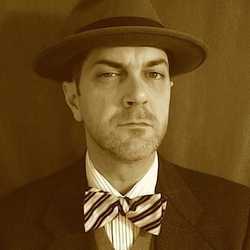 Bio: John Lowther's work appears in The Lattice Inside and Another South and Held to the Letter (with Dana Lisa Young) is forthcoming. He works in video, photography, paint and performance. His dissertation seeks to reimagine psychoanalysis with intersex and transgender lives as foundational. Sara Melson's music is a rich, variated tapestry, sometimes composed softly on piano, other times energetic with songs that drown out the barroom noise. Then there is the dreamy, ethereal Daniel Lanois' reminiscent "No Expectations", the perfect track for a late night highway drive, preferably in the desert, confronting the wide open spaces of the surrounding dark. Influenced by powerhouse songwriters like Carole King, Sara manages to dip into that rich well while pulling out sounds that are uniquely her own. Much of that is due to her diligent self awareness, as she writes, "Let's face it, most topics have been covered, most chord combinations have been used. So it's trickier than you would think to come up with something "original" that feels different and new. That's the work at hand, is figuring out how to do that." Tricky as it is, it's not impossible. The result is a music that feels profoundly lived in, experience that speaks in a universal language and a strength both quiet and loud. Singular, searching and utterly unafraid. AHC: What has this journey in music, so far, been like for you, the highs and the lows, and what sort of life lessons do you feel you've picked up along the way? Sara: Wow, so many. First of all, being an artist, and committing to really walking the road and living that life, is not for the faint-hearted. For one thing, you have to be on yourself to get up, get dressed, practice, rehearse, write, record, and then of course do all the tedious social media stuff that is required of one today... It takes a lot of self-discipline, since your boss is essentially yourself. I must say I often fantasize about what it must have been like to be an artist making music in the 60s or 70s or something, before the internet. It feels like now people are more concerned about how many followers you have on a multitude of platforms than they are about what you're actually doing artistically. The web has brought us many gifts, and connected us in marvelous ways, but that's not one of them... As far as highs and lows - the ultimate highs for me are recording in the studio, and playing live. Also, I must say, making a difference in the lives of fans, who write me and express the most beautiful messages of gratitude and inspiration. That's what keeps me going. The lows are realizing that due to the advent of streaming, records aren't really being "sold" anymore, and it's very hard for artists to make a good living nowadays. I was lucky enough to have a record deal a few years ago and be on the receiving end of some great licenses. But it's an uphill climb for sure. AHC: What first drew you to music and what was your early musical environment like growing up? Were there pivotal songs for you then that just floored you the moment you heard them? Sara: Oh yeah, music was my life, from an early age. My parents had an outstanding record collection. Just all the greats. The Beatles, Stones, Carole King, James Taylor, Joan Baez, Stan Getz, Astrud Gilberto, Miles Davis, Coltrane, Van Morrison, Bowie, The Band, Dylan, Fleetwood Mac, Leonard Cohen, Ike and Tina... Tons of classical, tons of jazz... I used to spend hours upon hours immersed in all these great albums, memorizing every note and lyric. SO many pivotal songs. All of Tapestry (Carole King) was just huge for me. Also the Beatles. I think Strawberry Fields was the first Beatles song I remember hearing. My mind was officially blown at age 6! AHC: Do you remember the first song that you ever wrote? Or that first moment when you picked up a pen and realized that you could create whole worlds just by putting it to paper? Sara: Well, I was writing poems and lyrics in my journals way before I understood that you could actually merge them with music to create songs. So I had tons and tons of lyrics already written by the time I wrote my first song. Interestingly, even though I am classically trained on piano, I didn't start writing songs until I picked up a guitar. A friend showed me a few basic guitar chords, and then I pretty much explored on my own and started writing immediately. I think the first song I ever wrote was called Make It Last. It's about living in the present. As soon as I began writing on guitar, it dawned on me that I could write on piano as well. Until that point, it really hadn't even occurred to me that I could play piano without the classical sheet music in front of me! So then the floodgates opened up... :) AHC: Which musicians have you learned the most from? Or writers, artists, filmmakers etc? Sara: Again, I'd have to give a shout-out to Carole King, whose voice I simply adore, and the Beatles. And the Stones, and Dylan, and Fleetwood Mac... Just huge influences for me... Later on I went through a giant Who phase, also discovered Roxy Music, Mazzy Star, Oasis, Blur, Wilco - love Jeff Tweedy so much!... The list goes on and on. Truly. AHC: What do you think makes for a good song, as you're writing and composing, is there a sudden moment when you know you've found the right mix, that perfect angle of light, so to speak? Sara: Yeah well, to me, it has to say something. I realize it's not like that for everyone. In fact, some people aren't even concerned with lyrics, and that's totally cool. I can get just feeling a vibe, and having that be enough. But it's so magical when the song can both have a vibe AND say something meaningful in a different way. I'm a pretty big fan of traditional song structure. I do play around with it and find myself experimenting more and more. But you can't really go wrong with a good Brill Building structure. As long as you make it your own and make it cool. Let's face it, most topics have been covered, most chord combinations have been used. So it's trickier than you would think to come up with something "original" that feels different and new. That's the work at hand, is figuring out how to do that. AHC: Do you consider music to be a type of healing art, the perfect vehicle through which to translate a feeling, a state of rupture, hope lost and regained? Does the writing and creating of the song save you in the kinds of ways that it saves us, the listener Sara: I think you mean state of rapture! Lol! YES... Definitely. In fact, I write music primarily as a means of self-therapy. Almost all my songs start out that way, coming from a deep innate need to make myself feel better, to process emotions, to work through revelations and learn from heartache... And the beauty of songwriting is that at the end of that, you have the song! And when that healing can impact and soothe other people too, then you know you're onto something. AHC: What are your fondest musical memories? In your house? In your neighborhood or town? On-tour, on-the-road? Sara: I've played in a lot of wonderful places, one of my most favorite being up in Big Sur at Fernwood. It's such a gorgeous place and such a fun vibe. I always play with a full band up there, and it's fun to get out of my head and play upbeat, fun songs that people can dance to. I also do a really special night here in LA at the Besant Lodge in Beachwood Canyon. It's an incredibly beautiful, unique venue with a grand piano, in a hundred year old church. It's imbued with so much spirit and history. I often have other songwriters get up and perform as well. Really fun event. I've played in Japan, England, Mexico... and of course hope to do a lot more touring in my life! AHC: With the traditional ways that we listen to music rapidly changing, does it affect how you write and put together an album? Too often people are downloading and engaging with singular songs rather than albums as on ordered and thematic canvas, do you regret that your work may not be received the way it was intended or created? Sara: As a consumer I'm a huge fan of streaming! But as an artist, it's tough, because streaming simply doesn't pay. I mean, seriously, each stream is like .0025 percent of one penny. Not kidding. So it's basically free. But on the upside, I actually kind of like the way that singles have become the way to get music out, as opposed to albums. It makes it way easier to stay productive and prolific, because you can just release stuff whenever you want to, piecemeal. I like that model. It can be hard to have to sit on your finished masters and wait for a proper album release, when you really want to get the music out! AHC: Do you have any words of advice for other musicians and singer-songwriters or anyone who is struggling to create something of value out there, who are just starting out and trying to find their voice and their way in this world? What are the kinds of things that you tell yourself when you begin to have doubts or are struggling with the creative process? Sara: I would say two things. One: If there is anything else that you could imagine yourself doing, do it. Because as I mentioned before, it's a tough road. Two: If you insist upon doing it, then do yourself a favor... Take your influences, study them, imbibe them, but when it comes time to sing... Let them go. Don't ever mimic. Don't imitate. Find YOUR own voice. It may not be the most perfect, and you may not be doing vocal gymnastics, but just make it yours. Neil Young or Bob Dylan would never have made the cut past the first audition for The Voice or American Idol. But they have those special, unique voices that are truly their own. That's what I strive for. It's so tiresome to turn on the radio and not be able to distinguish between any of the artists on there. There's too much imitation going on and not enough originality. AHC: Could you talk about your new album 'Safe and Sound'? Sara: Safe and Sound is a collection of a couple of older songs that were kicking around before but had never been released, a couple of cool covers that I chose to interpret in my own way, and some new songs that stretch me outside my comfort zone when it comes to production, especially. I worked with a few different producers on this record, which makes it interesting, since there are different vibes -- alternately melancholy and trippy, and then poppy and upbeat -- depending on the song and also how it was recorded. I worked primarily with Rick Parker, who is responsible for the excellent Lord Huron records, as well as a bunch of other indie artists like Black Rebel Motorcycle Club, Raveonettes, and Joseph Arthur. The album has a sort of dreamy feel to it, which is what I was going for. The two covers I did, No Expectations by the Rolling Stones, and Thank You by Led Zeppelin, were produced by Oliver Newell, who does a lot of electronic music and beats. His production on both I think is amazing. Super psychedelic and beautiful. Was so fun making those. I want to sing on some ambient electronic music... would love to collaborate and lend vocals to other people's tracks! For more visit www.saramelson.com/ Facebook www.facebook.com/saramelson Twitter twitter.com/saramelson Instagram www.instagram.com/saramelson 12/14/2016 Black and White World by Ron Gibson, Jr.Black and White World Looking through old family photo albums as a little boy, I was convinced the world was once in black and white. My mother was Dorothy at the beginning of The Wizard of Oz, dressed in bib overalls, bangs crooked from cutting them herself, arms wrapped tight around her little dog, Maximillian, as if anticipating her feet may leave the ground at any moment. She's never remembered much of her childhood. It's as if a cyclone fell from the sky and transported her through a tunnel of darkness from one age to the next. Asking her certain questions feels like digging through the remnants of a destroyed home, trying to find an unbroken piece of happiness. On the other hand, my father vividly remembers the first time he noticed my mother. They were in choir together, on a field trip, when my mother slipped in the mud. The choir teacher instructed him to escort my mother and her female friend to knock on a stranger's door to help her clean up. While the woman of the house and my mother's friend helped my mother in the bathroom, my father said he watched Search for Tomorrow on a black and white TV until they were done. The first time my father told this story, my mother denied it. The more insistent my father became, the more vehement her denial. I could never understand how something so simple could cause such arguing. Was it pride? If my mother admitted it was true, was she also admitting she didn't remember? And if she didn't remember, was she admitting in some way her life didn't make sense? Over the years, I've watched my mother's resistance fade. It's as if the memory built from the telling now stands as fact. The only proof I have is a middle school recording of The Little Drummer Boy. On the back album sleeve their names are listed. When I'd play it on the turntable as a boy, wearing oversized headphones, their voices would blend. I saw them in my mind, young, in a black and white world, two dark ships passing each other in a tunnel of night, until they were due to arrive on the otherside of the photo album, both seventeen, hand in hand, my mother in a bright floral dress and my father in a tux with wide lapels, ruffles and a moustache about to head off to the Homecoming Dance. Once I asked my mother what it was like back when the world was black and white. And though I doubt she remembers, she placated me and said, "It's not so much different than now." Bio: Ron Gibson, Jr. has previously appeared in Entropy Magazine, Stockholm Review of Literature, Cheap Pop, New South Journal, Jellyfish Review, Whiskeypaper, Easy Street, Noble / Gas Quarterly, Harpoon Review, Spelk Fiction, etc. & forthcoming at The Nottingham Review, Rain Party Disaster Society and apt. @sirabsurd 12/12/2016 Three Poems by Mike Linaweavermorning when we had taken up residence I had thought of little else but the saddle of your spine and the curve of your neck and the long ragged prairies punctuated by ochered cattle that stain the horizon red with the first teeth of dawn and you angled as you are lying between me and us a leg draped over the edge whisper quietly in your sleep of the river dead with the rot of a gaudy hour yellowing toward daylight in the gales of the central plains I want to say silence crisp and clingy the rim of your peasant dress and those flowers knuckled between your fingers who are you? You made lemonade but I want to say to you alajladejown aljenaljaoof but I want to say to you that I love you but but I am choked and the plants are dead and the cat is resting like cats do and my tongue knows no language yet so I like the plains grow over terminally lipped by the congealing mass of breath black and curs ed charms and calam ity and days a drift countless meatless hulls of of the ending suns this sea son of mold er ing dissent bends to the god on my lips I am a sequence frowning into of unfastened ideas and street lamps grocery stores liberalism, revision, sectarianism and stagnation the politics of meloncholy of dead engines of cigarette smoke and our languages of duopoly and our rape of revered ghosts and our days of lesser socialism or evilism political spectres more of want than of strategy creating the blind planets of our burden mixing the heat of generations with beer and tear gas wanting the how and the when of existing this is propagation this is creating the blind we this is the distressed voter this is the incurable and dying worker lashed to factories of context failing the test of organic rythms we forgot the bread and roses 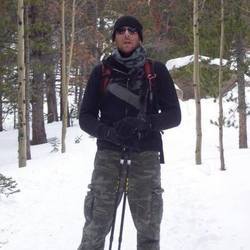 Bio: Mike Linaweaver is a socialist, activist and writer operating in the endless summer of South Texas. His story "Are You Alright?" was nominated for a 2014 Pushcart Prize. His work has appeared in Sleet Magazine, The Magill Review and Red Wedge Magazine. He was a founding member and editor of the South Texas art and culture (maga)zine, Strike and is currently working on the small press project Strike Syndicate with fellow founder, editor and writer Raul Alonzo. Lisa Gatewood, a singer-songwriter from Milwaukee, WI, pens songs that dig deep into the human condition, asking both the big and small questions that keep us up late at night, that give us gravity. At their best moments, certain songs tug at the inner wiring of our hearts, reminding us of fences we've yet to mend, things we've forgotten to say, lives that we've put on hold or neglected to live wild and bravely. Here are "songs for the lost and found, the accidental sailors who have all but drowned." And it is the all-but-drowning which keeps our hope alive. AHC: What has this journey in music, so far, been like for you, the highs and the lows, and what sort of life lessons do you feel you've picked up along the way? Lisa: I’d say that the journey has really been about getting comfortable defining myself as a musician. As I was growing up, I loved to sing and I knew I was a good singer. I picked up the guitar in high school as a way to accompany myself, but I’ve never been an advanced player. I think because of that, it was easy to convince myself that I belonged in some other category - That everyone else was a musician and I was someone who just dabbled in it. I have a friend who would always laugh at me because instead of saying I was a musician, I would always qualify it by saying “a local musician” as if that somehow lessened the burden of my conscience about it. In those days I spent a lot of time worrying that people would think that I thought I was in the same league as them. I think what I learned, especially as I entered my 30’s, was that no one is in the same league. We’re all just kind of doing our own thing in the same space. There’s so much freedom in getting older - you let go of the compulsion to compare. That’s a great gift for an artist. I wish I had done it sooner. AHC: What first drew you to music and what was your early musical environment like growing up? Were there pivotal songs for you then that just floored you the moment you heard them? Lisa: My dad and my Uncle Scott were both musicians as I was growing up. My dad played the blues and my uncle played postmodern torch songs, so it’s easy to cite that as an obvious influence. But I’d say that they mostly influenced me by making the idea of writing and performing music accessible. I think, for some people, the idea of being a musician equates to being a celebrity, which seems far-fetched and unattainable. In our house, I saw the reality of being a musician and that it wasn’t record contracts and tours, it was playing local clubs, scraping together money to record, songs written and rewritten at the dining room table. Because I was raised in a musical household, I had easy access to great music at an early age. I listened to such a diverse spectrum of artists - not only the top-40 artists of the mid-80’s, but I was also listening to Ricky Lee Jones, Randy Newman, Brian Wilson (so much Brian Wilson!), David Bowie, Bob Dylan, Otis Redding and Joni Mitchell. My earliest musical obsession was The Monkees, which started when I was about 3 years old and will end never. With the losses of Leonard Cohen, Prince and David Bowie this year, Mike Nesmith recently earned a spot on my list of “Five Men Over 50 I’d Like to Slow Dance With”, though I’m starting to worry that list might be cursed. It’s hard to pinpoint a single pivotal song, because there were so many of them. Several songs on Joni Mitchell’s Blue album made me want to write music. The song “I Just Wasn’t Made for these Times” from Pet Sounds (The Beach Boys) spoke to me on a deep level at a young age because I always felt weird and different and at the time I was too young to know that everyone did. AHC: Do you remember the first song that you ever wrote? Or that first moment when you picked up a pen and realized that you could create whole worlds just by putting it to paper? Lisa: My first songs were dripping with adolescent angst and not worth noting, in my opinion. I think when I started performing in my early 20’s the reaction from the listeners was my first indication that I had something worth sharing. I loved talking to people after shows and hearing how certain songs moved them in very personal ways. It was also a great reminder that the human condition is universal. AHC: Which musicians have you learned the most from? Or writers, artists, filmmakers etc? Lisa: Although my influences reach far and wide, spanning genres and mediums, I’ve learned the most from musicians I knew personally, who blazed the trail before me and continue to surpass me in every imaginable way: My uncle, Scott Gatewood, first and foremost, because we have the same genetics and I feel like our message is the same at its core. Ben Cervenka, a former collaborator of mine that we lost too soon, who wrote the most interesting lyrics I’ve ever heard and challenged me to reach a little further with my words. I still listen to his music regularly and you can hear a duet of ours called “Questions” on my new album. Martin Jack Rosenblum (“The Holy Ranger”), Heidi Spencer, Christopher Porterfield, Tom Brosseau and countless other musicians that I’ve had the pleasure of sharing a stage or a conversation with. AHC: What do you think makes for a good song, as you're writing and composing, is there a sudden moment when you know you've found the right mix, that perfect angle of light, so to speak? Lisa: Honesty. AHC: Do you consider music to be a type of healing art, the perfect vehicle through which to translate a feeling, a state of rupture, hope lost and regained? Does the writing and creating of the song save you in the kinds of ways that it saves us, the listener? Lisa: Anyone who has ever made a mixtape for someone they will never give it to knows that the answer to the first question is yes. Songs can help us put into words feelings that we could never begin to articulate and that is a necessary catharsis. And writing it can be necessary catharsis too. There are things we have to get out of us, both as writers and as listeners. Listening to and writing music is like therapy, but cheaper. AHC: What are your fondest musical memories? In your house? In your neighborhood or town? On-tour, on-the-road? Lisa: Everything... everything. But I’ll name just a couple of the absolute fondest:
AHC: With the traditional ways that we listen to music rapidly changing, does it affect how you write and put together an album? Too often people are downloading and engaging with singular songs rather than albums as on ordered and thematic canvas, do you regret that your work may not be received in the way it was intended or created? Lisa: I don’t get hung up on stuff like that. Whether I get a notification that someone bought my whole album or someone bought a single track, my reaction is the same - which is to parade around my house and casually refer to how famous I am. Maybe if I was Beyonce and I was writing awesome concept albums like Lemonade, I’d feel sad if people were just downloading one or two songs, but I guess I don’t feel like my music requires that kind of context (not that Beyonce does require context, she requires nothing but our devotion - all hail Queen Bey). For me, writing music has never been about the listener. Even if no one listened to my music, I would still write because I have to. Don’t get me wrong, I love that people listen and like it - I wish more people would listen so I could be Beyonce too. But albums are like pies. Are you going to say a pie is not delicious just because you only ate one slice? No, that would be crazy. Enjoy your pie however you want. And maybe after you eat one piece, you’ll be thinking about the pie later and go back for seconds. Or maybe you’ll say to a friend, “I had this amazing piece of pie that I can’t stop thinking about” and then your friend will go get a slice of pie too. I just make the pies, I can’t tell you how to eat them. AHC: Do you have any words of advice for other musicians and singer-songwriters or anyone who is struggling to create something of value out there, who are just starting out and trying to find their voice and their way in this world? What are the kinds of things that you tell yourself when you begin to have doubts or are struggling with the creative process? Lisa: I once went to hear an author speak to a creative writing class at my University. A student asked him “How do I know if what I’m writing is any good?” and he answered “The fact that you worry about that means it probably is. People with no talent never seem to worry about that sort of thing”. My advice is this, you will always worry that what you are creating lacks innovation and value. You will always worry that someone else is doing it first or better. But I assure you, that feeling you get when a small grain of an idea is tugging at your sleeve, begging you to acknowledge it, is something we have all felt. You owe it to yourself to explore and create. Don’t worry if anyone else will listen to it or “get it”. Create because you must. AHC: Do you have any new projects you'd like to mention? Lisa: I’ve got a couple of ideas that are still marinating. Stay tuned. Visit lisagatewood.bandcamp.com/ |
AuthorWrite something about yourself. No need to be fancy, just an overview. Archives
April 2024
Categories |
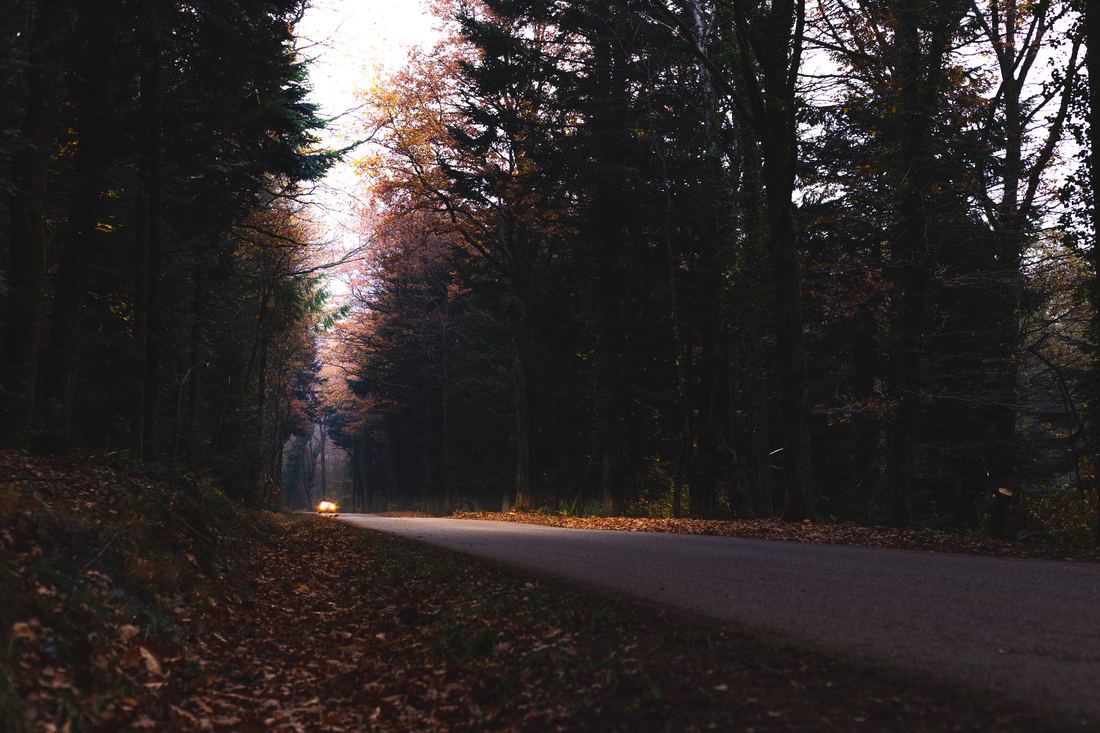
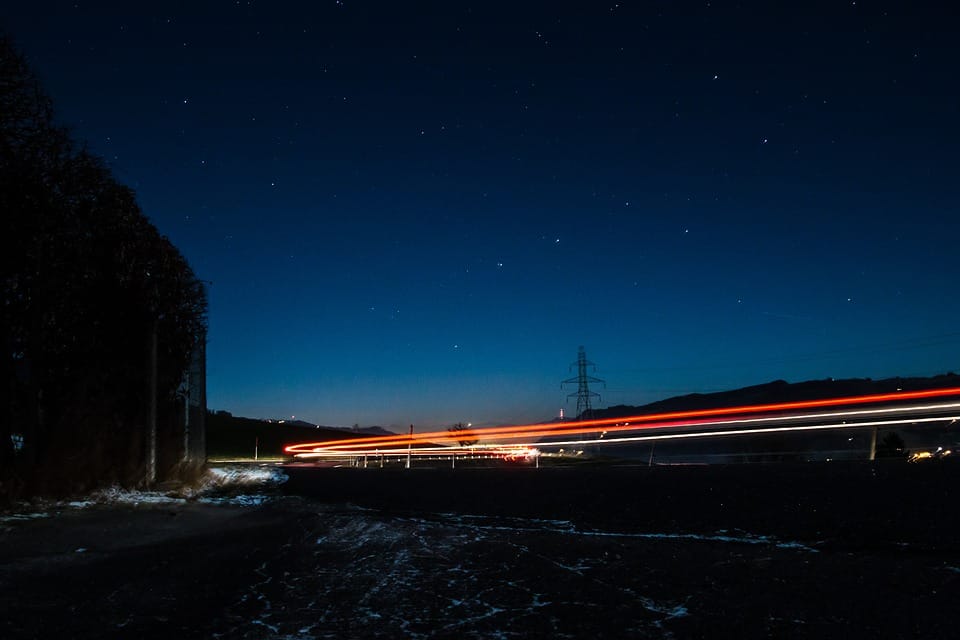
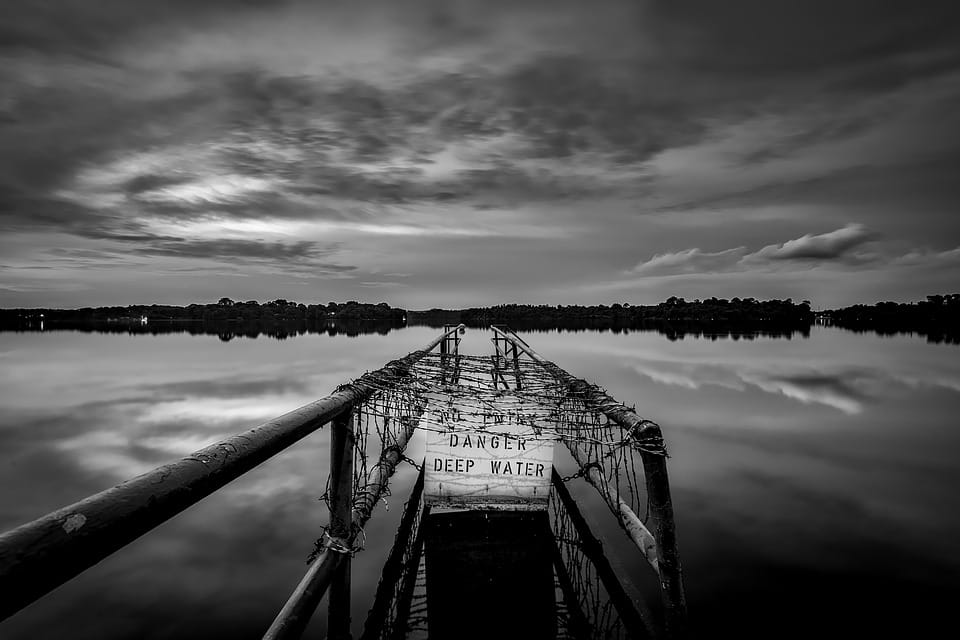
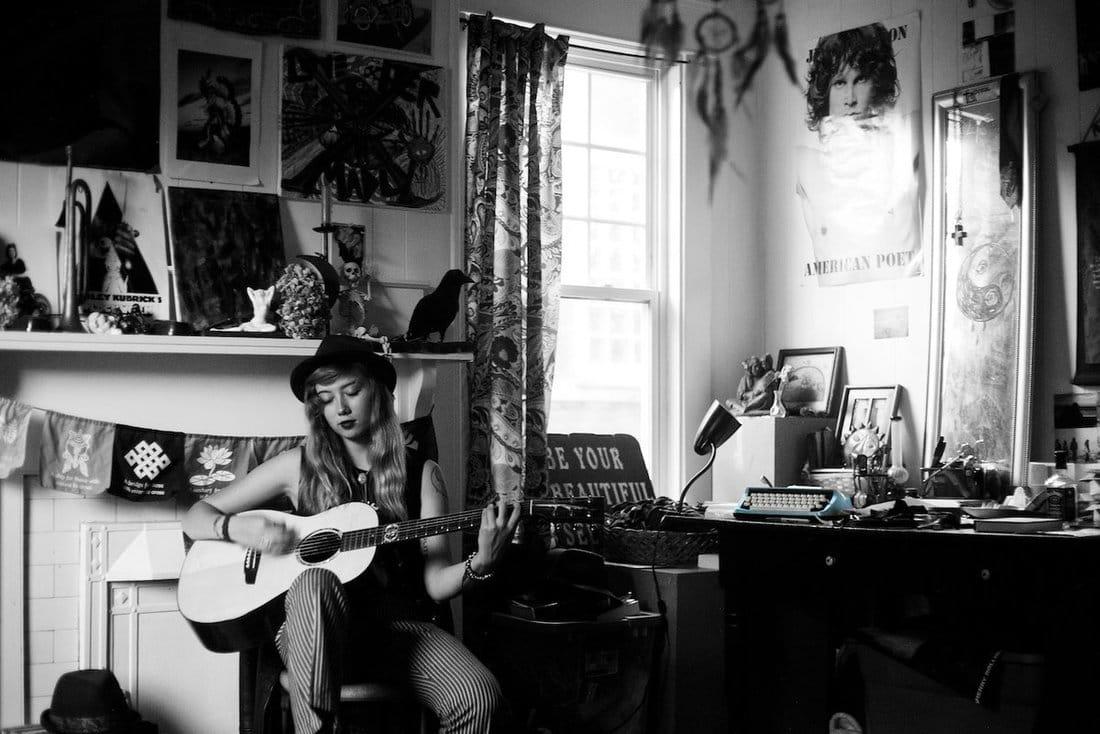
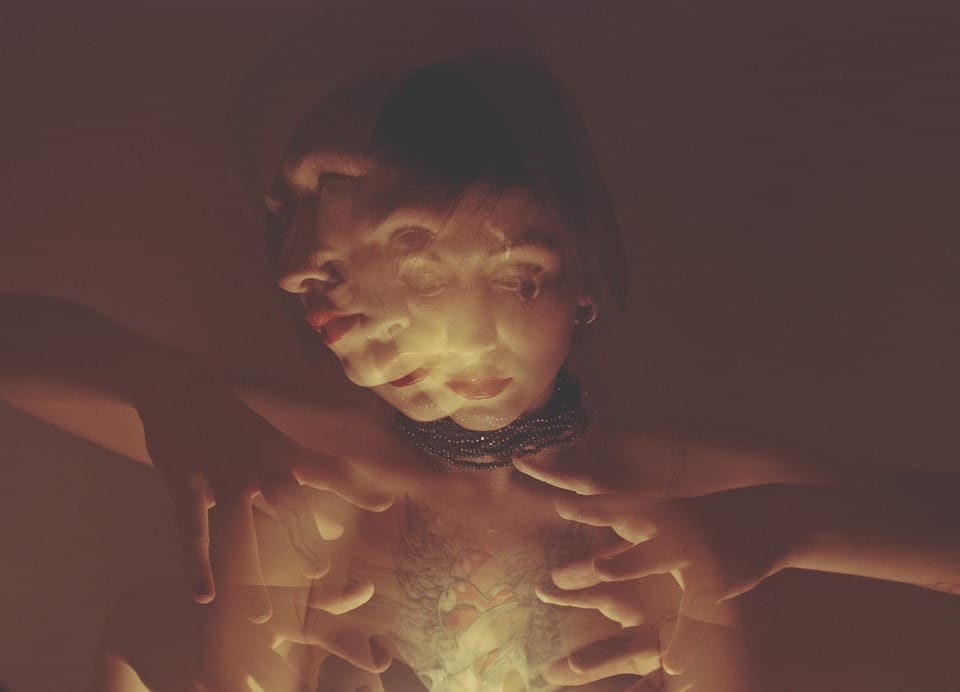
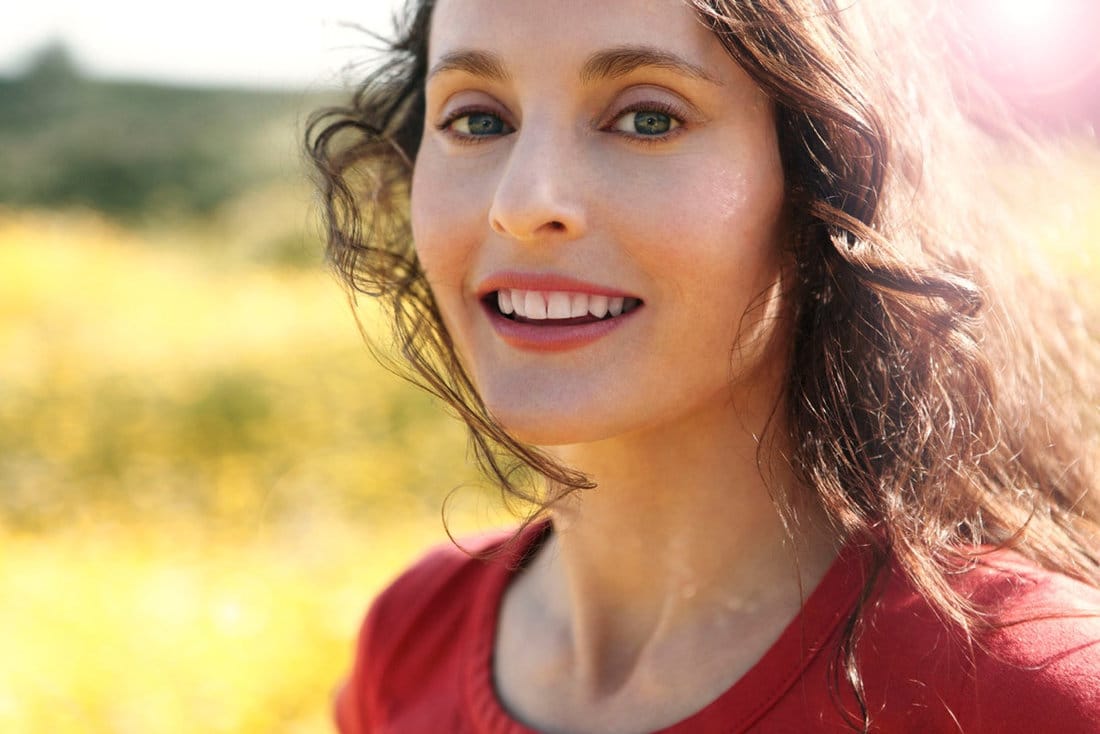
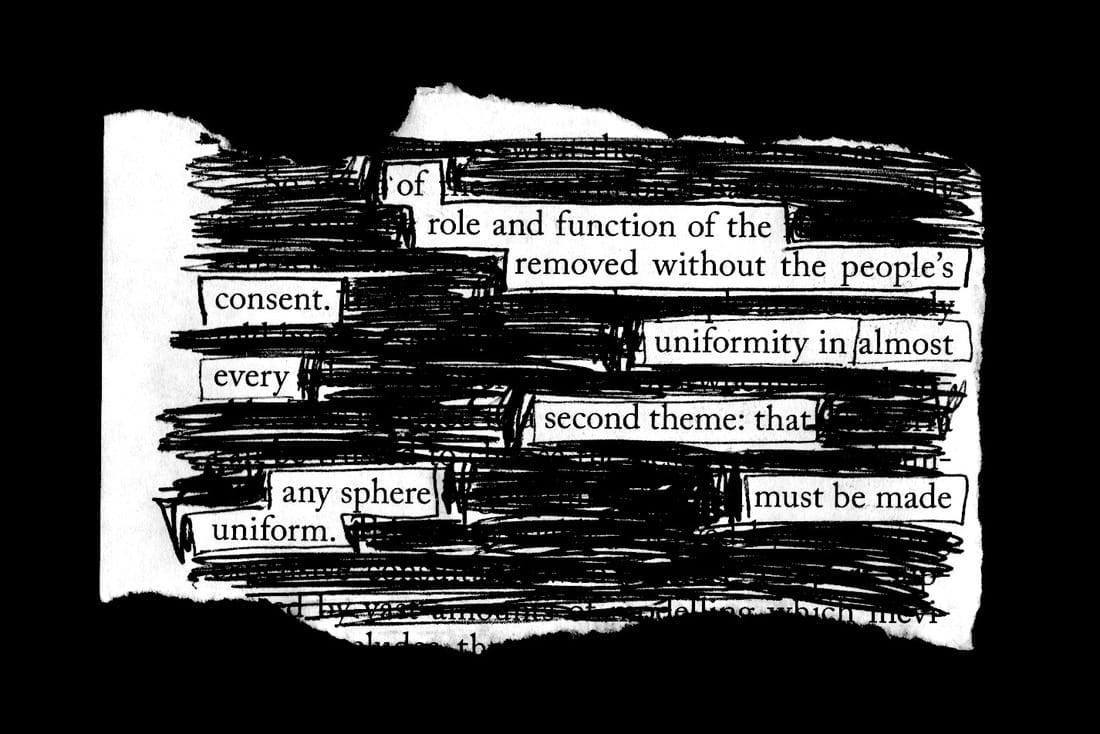

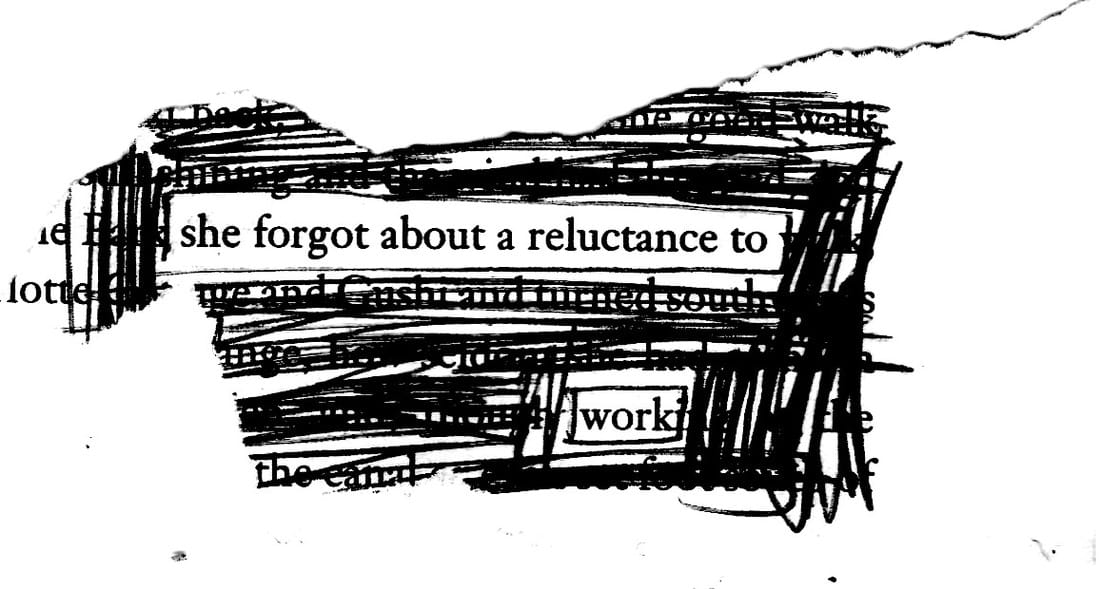
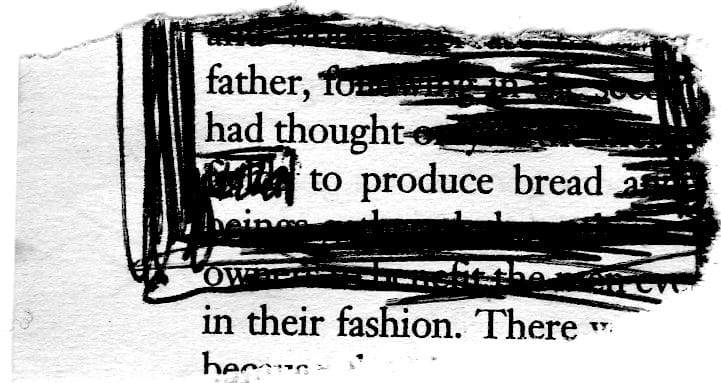
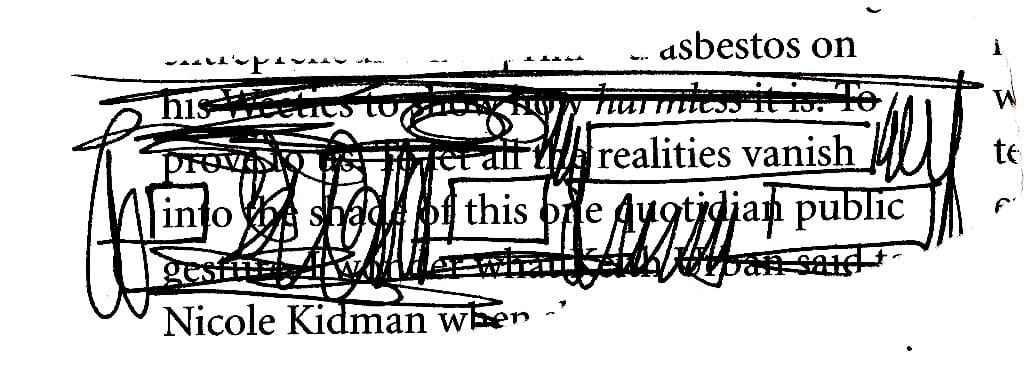
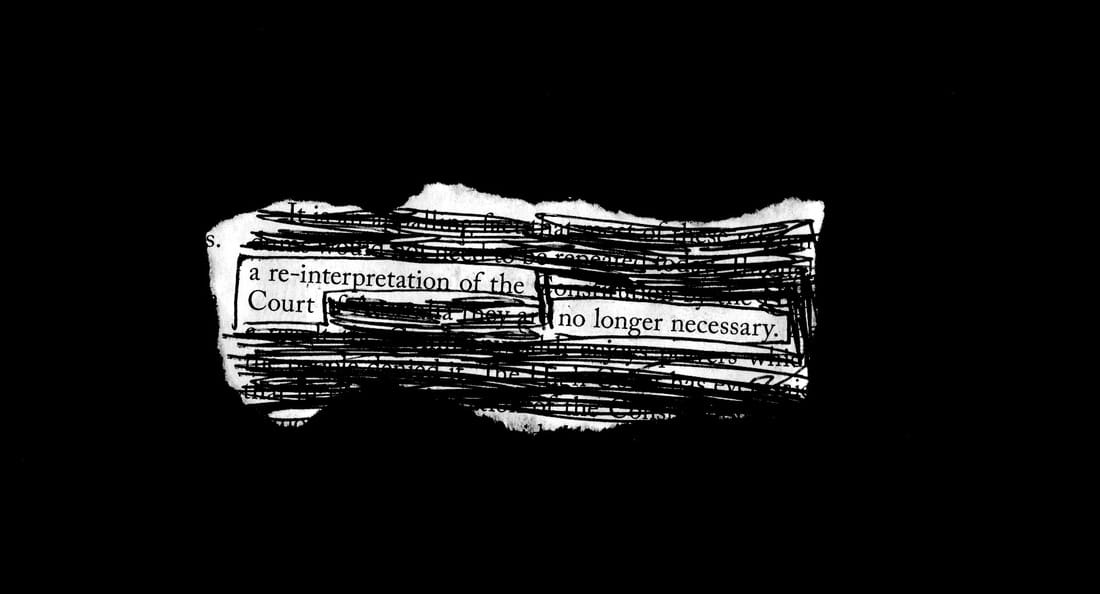
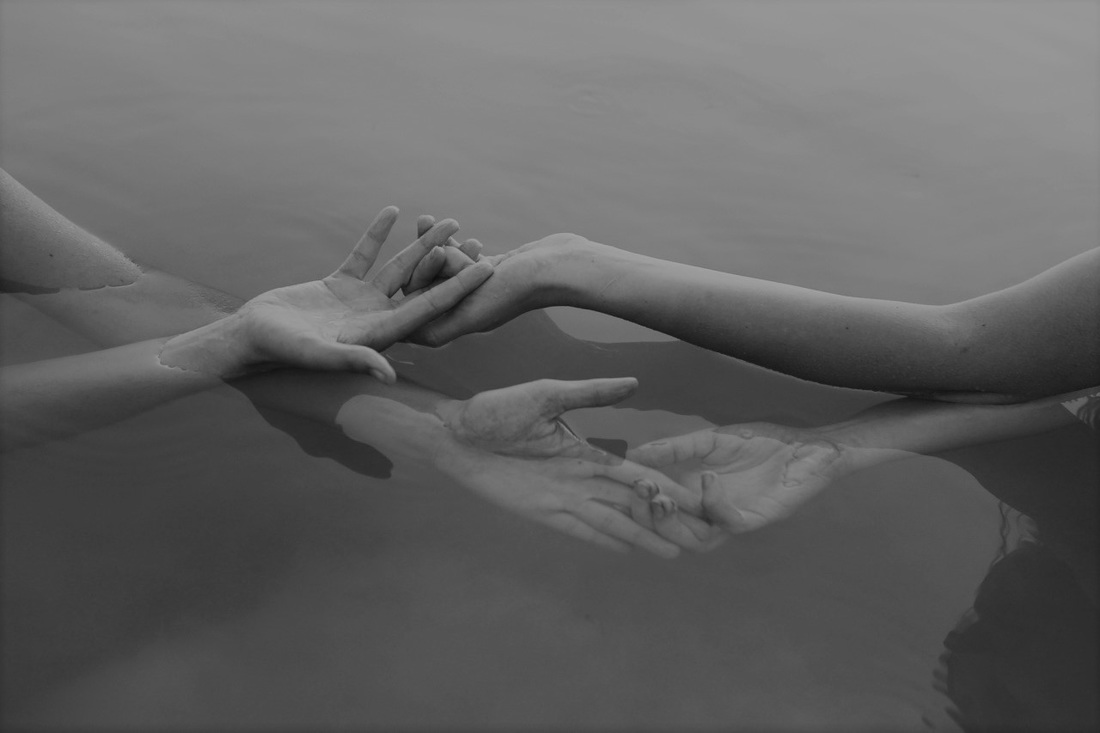
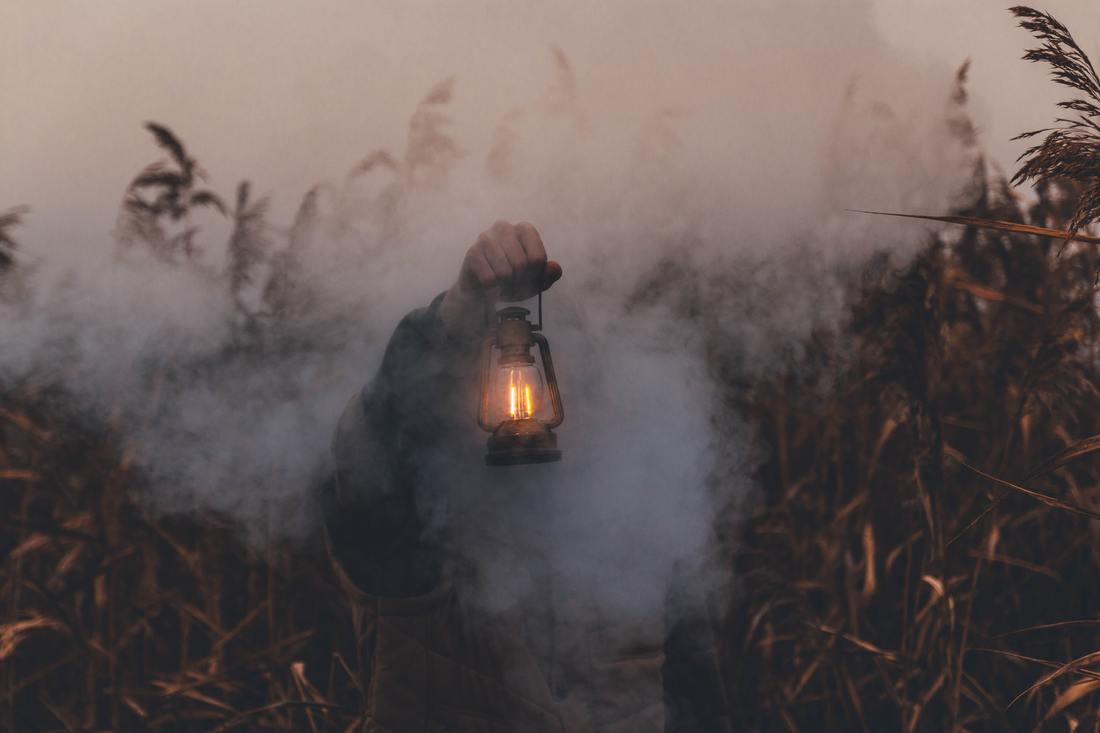
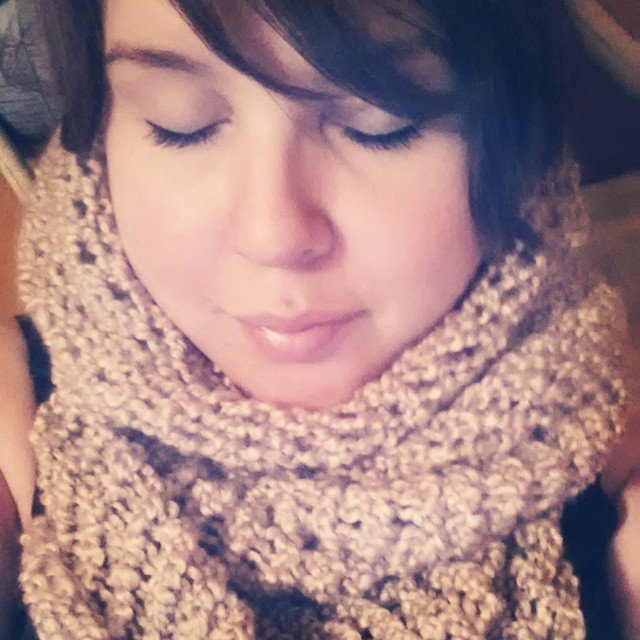
 RSS Feed
RSS Feed
